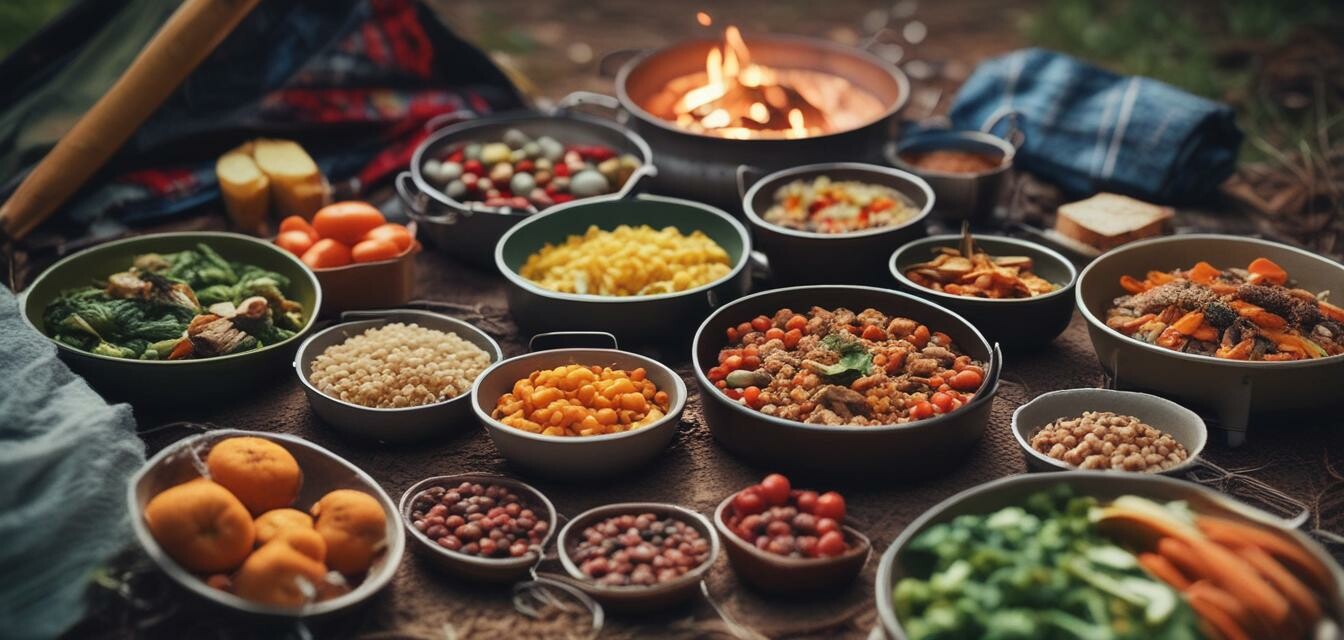
Camping Essentials for Vegan and Vegetarian Diets
Key Takeaways
- Planning meals ahead is essential for a successful vegan or vegetarian camping trip.
- Pack nutrient-dense foods that are easy to prepare and transport.
- Utilize versatile cooking methods for an enjoyable cooking experience outdoors.
Camping is an amazing way to connect with nature, but for vegetarians and vegans, it comes with its own set of challenges, particularly regarding food preparation and meal planning. This guide outlines essential foods to bring and tips for preparing delicious meals while camping.
Choosing the right foods
When you're camping, having the right foods on hand can make all the difference. Here are some essential foods and their benefits:
| Food Type | Nutritional Benefits | Recommended Cooking Methods |
|---|---|---|
| Quinoa | High in protein and fiber | Boil or steam |
| Chickpeas | Rich in protein, iron, and essential vitamins | Roast or add to soups |
| Nuts & Seeds | Great source of healthy fats and protein | Eat raw or toast over the fire |
| Vegetables (carrots, bell peppers, zucchini) | Rich in vitamins and minerals | Grill or skewered over the campfire |
| Fruits (apples, bananas, berries) | Good source of vitamins and quick energy | Eat raw or grill (bananas) |
Meal preparation for vegetarians and vegans
Preparation is key to making your camping trip run smoothly. Here are some tips for packing and preparing meals:
- Make a meal plan: Before your trip, create a meal plan for each day. This will help streamline shopping and packing.
- Pack smart: Use containers that seal well to keep your food fresh and prevent spills.
- Pre-cook when possible: If you know you're going to need certain meals, prepare them at home. For instance, cook quinoa or roast vegetables ahead of time.
- Utilize foil packs: Foil packs are perfect for cooking veggies and grain mixes over a campfire.
- Keep it simple: Choose meals that require minimal ingredients and prep time.
Cooking essentials for outdoor meal preparation
Equipping yourself with the right cooking gear will significantly enhance your outdoor cooking experience. Here’s a list of essentials:
- Camping stove: Lightweight and easy to use for cooking grain and soups.
- Grill grate: Allows you to cook veggies and sandwiches directly over the campfire.
- Cast-iron skillet: Perfect for whipping up veggie scrambles or stir-fry.
- Biodegradable soap: Essential for cleaning cooking utensils.
Snacks and on-the-go options
Camping often includes long hikes and time spent outdoors, meaning you'll need snacks that keep you fueled. Here are some great options:
| Snack | Nutritional Benefits | How to Prepare |
|---|---|---|
| Trail Mix | High in energy, contains nuts, seeds, and dried fruits | No preparation required, mix and go! |
| Energy Bars | Convenient and nutrient-dense | Packed ahead of time—store in a cooler |
| Nut Butter Packets | Excellent source of protein and healthy fats | No preparation; simply squeeze onto fruit or crackers |
| Dried Fruits | Quick energy boost and vitamins | Ready to eat, no preparation needed |
Tips for cooking over a campfire
Cooking over a campfire can be very rewarding, but it comes with its own challenges. Here are some tips to make it easier:
Beginners Section: Tips for Campfire Cooking
- Start early: Gather wood and prepare your fire well in advance to allow it to burn down to coals.
- Temperature control: Cooking on hot coals provides better heat control compared to flames.
- Use the right tools: Long-handled utensils and grill mitts will help avoid burns.
- Experiment: Don’t be afraid to try different dishes; camp cooking is all about creativity!
Pros
- Easy to pack nutritious foods
- Flexibility in meal choices
- Quick meal prep and cooking times
Cons
- Limited refrigeration options
- May require additional cooking tools
- Potential for fewer options at restaurants or camp stores
Conclusion
Camping as a vegan or vegetarian doesn't mean you have to compromise on taste or nutrition. With the right planning, food selection, and cooking techniques, you can enjoy wonderful meals in the great outdoors. Make sure to check out our other guides on camping tips and cooking and meal prep essentials to further enhance your outdoor experience.